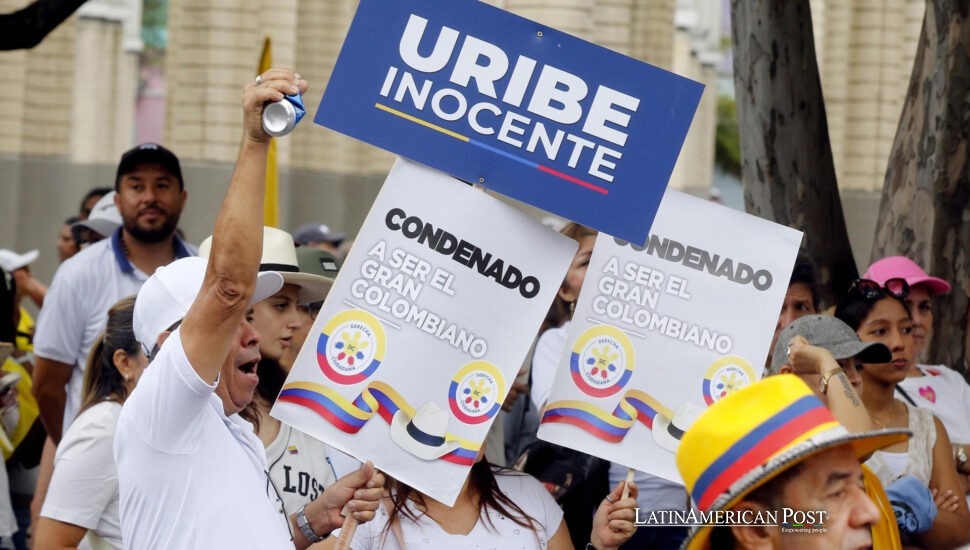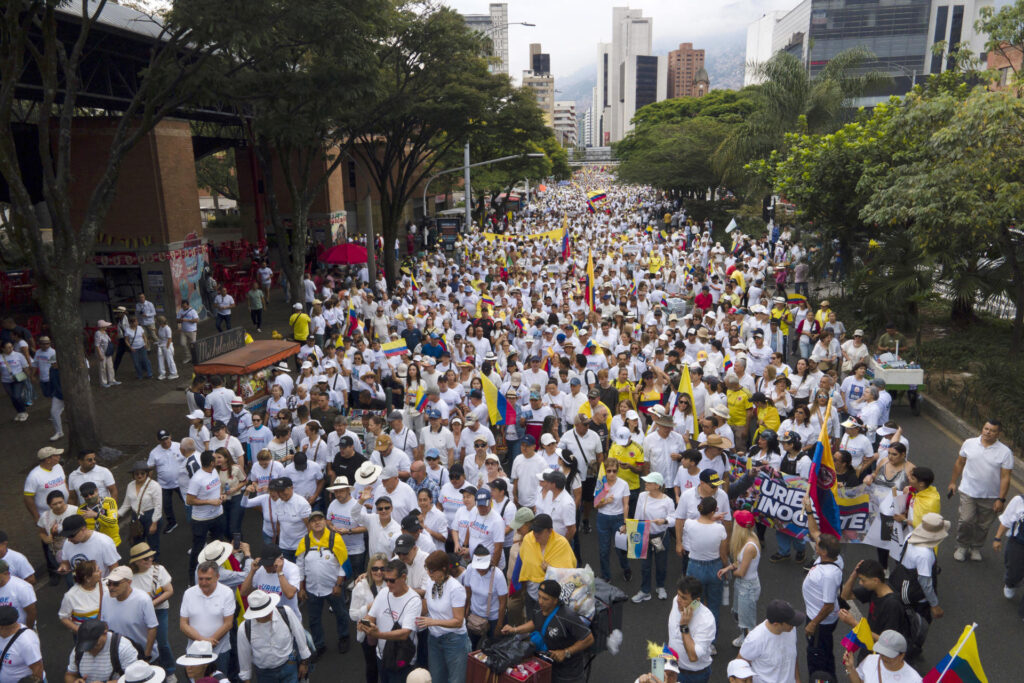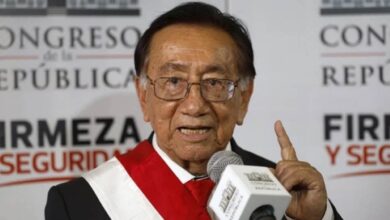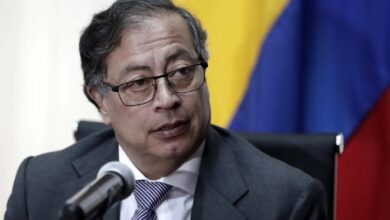Colombia’s Streets Erupt as Uribe’s Supporters Turn Verdict Into a Rallying Cry

Under a gray Bogotá sky, rain-slicked streets became a chorus of defiance. Thousands in Colombia and abroad rallied behind former president Álvaro Uribe, rejecting the 12-year house arrest sentence they see as political persecution rather than justice served.
Marching for a Fallen Leader
On August 7—the anniversary of the Battle of Boyacá and the halfway mark of President Gustavo Petro’s term—the “Gran Marcha Nacional” became part protest, part pilgrimage. In Bogotá, it began at Parque Nacional, where a tide of white shirts, all printed with Uribe’s likeness, surged toward Plaza de Bolívar through a steady drizzle.
For many, this wasn’t about strict party lines. It was about defending a man they see as a symbol of security and resolve. “I’m not from Centro Democrático, but what happened to Uribe is unjust,” Marta Caicedo told EFE, summing up the feeling behind banners blaring Uribe Inocente and Justicia Politizada No.
The verdict—handed down August 1 by Judge Sandra Heredia—hit like a thunderclap. Uribe, 73, was convicted of procedural fraud and witness tampering and ordered to serve his sentence at his ranch in Rionegro, Antioquia. His supporters insist the charges were trumped-up, his trial poisoned by political bias.
A Nationwide Wave of Support
In Medellín, Uribe’s hometown, the protest felt more like a civic holiday than a political act. Marchers wove through the streets alongside floats from the city’s Feria de las Flores, some bearing vast floral silletas spelling out Inocente. In Cali, and again in Bogotá, brief shouts and shoves broke out between Uribistas and Petro supporters but fizzled before police could intervene.
The sea of signs told its own story. The most visible were the giant black-on-green Uribe Inocente banners. Others broadened the message: Basta Ya de Malos Gobiernos, No Más Corrupción en la Justicia.
Army Day lent another dimension. Retired officers joined the Bogotá march, their uniforms traded for civilian clothes, but their message still martial. “We believe our Armed Forces are weakened—especially Special Forces, Intelligence, and Army Aviation,” retired Major Jorge Castillo told EFE. He accused Petro of neglecting the military, contrasting it with Uribe’s “democratic security” years, when the armed forces were central to national policy.
Political Tensions Run Deep
For some, the protest was as much about Colombia’s broader political climate as it was about Uribe’s fate. Luis Gabriel Cortés, a marcher in Bogotá, said his outrage was layered. “I’m outraged by what has happened to Uribe, by what’s happening in Colombia, and by how justice is manipulated,” he told EFE.
March imagery also tied Uribe’s case to another fresh wound: the June 7 shooting of Senator Miguel Uribe Turbay, a presidential hopeful for Centro Democrático. Though not related to Álvaro Uribe, his double gunshot wound to the head during a Bogotá campaign event rattled the country. In critical condition for weeks, his survival became a rallying point. Posters paired his photo with the ex-president’s under the slogan Yo Soy Doblemente Uribista. The attack reignited old fears—that political violence, thought to be a scar of the past, was bleeding into the present.

Beyond Borders, the March Goes Global
From Miami to Madrid, Colombians living abroad joined the chorus. More than 20 cities saw solidarity rallies, their flags and chants bridging the miles between expatriates and the plazas they once knew. For these communities, Uribe’s legacy—be it as savior or sinner—remains deeply personal.
The former president’s career has always been a balancing act between loyalty and controversy. Admirers credit him with confronting guerrilla groups head-on; critics accuse him of human rights abuses and authoritarian leanings. His sentencing has poured fresh fuel on this long-running fire.
Also Read: Colombia’s Battle of Boyacá: The Riverbank Where a Republic Was Born and a Monarchy Fell
Yet on this day, in streets from Medellín to New York, one truth was plain: to his supporters, Uribe’s fight against the verdict is now their fight. The rain-soaked chants in Plaza de Bolívar weren’t just about a man—they were about the Colombia they believe he defended, and the belief that the battle for his name is far from over.
Quotes and interviews courtesy of EFE.





